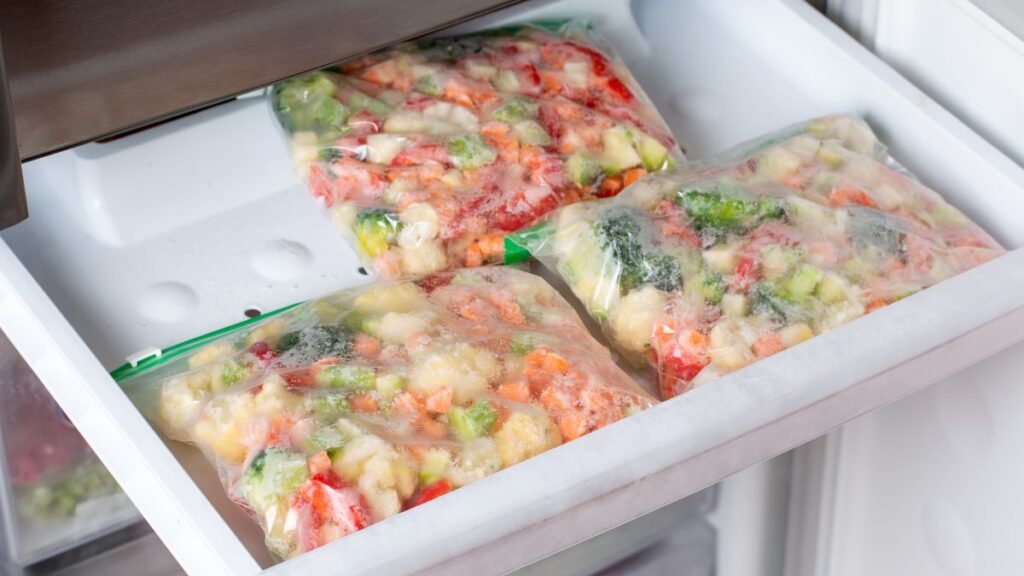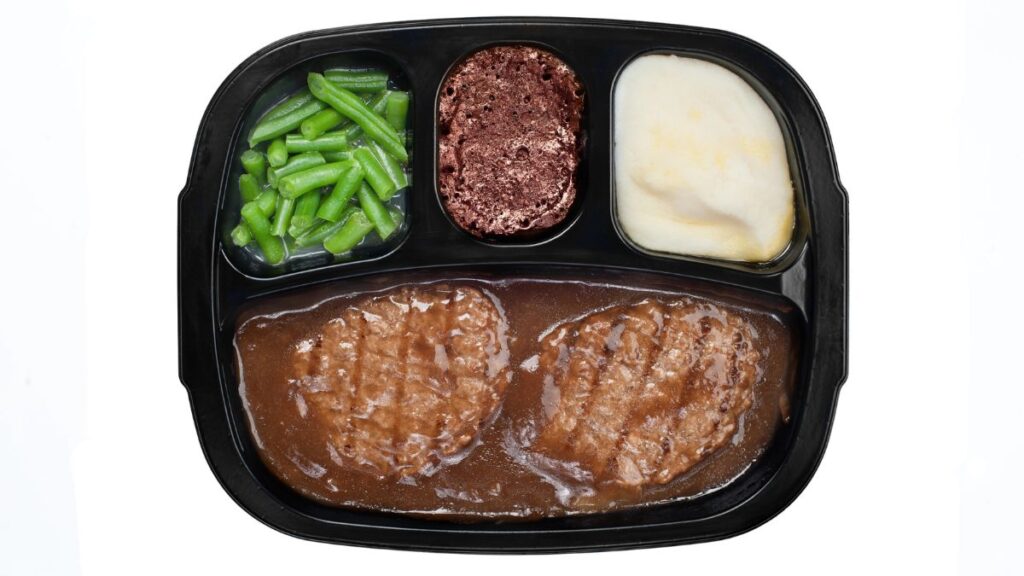15 Smart Strategies to Slash Your Grocery Bill Without Using Coupons
Grocery shopping can quickly become one of the biggest expenses in your monthly budget, especially if you don’t have a strategy to manage costs. While coupons are a popular way to save money, there are many other effective strategies to reduce your grocery bill.
By making smart choices and adopting a few new habits, you can keep your spending in check without needing to clip coupons. Here are 15 practical strategies to help you cut your grocery bill and make your money go further.
Plan Your Meals

Planning your meals can significantly impact your grocery bill. Creating a weekly menu lets you make a detailed shopping list that includes only the items you need. This helps avoid impulse purchases and reduces food waste, as you’ll buy only what you will use.
Meal planning also allows you to take advantage of sales and seasonal produce, which can further lower your costs. With some planning, you can enjoy well-balanced meals and stick to your budget.
Stick to a Shopping List

A shopping list is one of the most effective ways to stay within your grocery budget. Before you head to the store, write down everything you need and stick to it as closely as possible.
This simple habit helps prevent impulse buys and keeps you focused on purchasing only what you planned. If you find it hard to resist spontaneous items, try using a shopping list app to check off items as you shop. A well-organized list can save both time and money.
Buy in Bulk

Buying in bulk can be a smart way to save money, especially for non-perishable items or products you use frequently. Items like grains, pasta, and canned goods often cost less per unit when purchased in larger quantities.
Just make sure you have the storage space to keep these items fresh. Consider buying in bulk and freezing portions for later use for perishable goods. Bulk buying can lead to significant savings over time, especially if you choose items with a long shelf life.
Use Store Brands

Store or generic brands are often priced lower than their name-brand counterparts but offer similar quality. You can save money on everyday products by opting for store brands without sacrificing quality. Compare the ingredient lists of store brands with name brands to ensure you’re getting a similar product.
Many stores offer various store-brand items, from staples like milk and bread to specialty products. Switching to store brands can help you reduce your grocery expenses without major changes to your shopping habits.
Shop Seasonal Produce

Seasonal produce is usually fresher and cheaper than out-of-season items. When fruits and vegetables are in season, they are more abundant and often sold at lower prices. Visit local farmers’ markets or check grocery store ads to determine which produce is in season.
Seasonal produce also tastes better and is often grown closer to home, reducing transportation costs. By focusing on seasonal fruits and vegetables, you can enjoy a variety of fresh, affordable options throughout the year.
Freeze Leftovers

Freezing leftovers is a practical way to avoid wasting food and extend the life of your meals. When you have leftover portions from dinner or batch-cooked meals, freeze them in individual containers for quick future meals.
This saves money and time on busy days when you don’t feel like cooking. Label and date your containers so you can quickly identify what’s inside. Properly stored leftovers can stay fresh for months, providing convenient and cost-effective meal options.
Buy Frozen Produce

Frozen fruits and vegetables are often just as nutritious as fresh ones and can be significantly cheaper. They are picked and frozen at their peak ripeness, preserving their flavor and nutrients.
Frozen produce is also less likely to spoil quickly, giving you more time to use it. It’s a convenient option for those who want to keep a variety of vegetables and fruits on hand without worrying about them going bad. By incorporating frozen produce into your meals, you can enjoy healthy options at a lower cost.
Compare Unit Prices

Comparing unit prices is a simple but effective way to ensure you get the best deal. Unit prices show the cost per ounce, pound, or liter, making it easier to compare different sizes and brands of a product.
This helps you determine which option offers the best value for your money. Unit pricing is often displayed on the shelf label, so check it before making a purchase. By comparing unit prices, you can make more informed choices and avoid paying more than necessary.
Avoid Pre-Packaged Foods

Pre-packaged foods often have a higher price tag due to convenience and packaging costs. Instead, buy ingredients in their basic form and prepare meals from scratch. This saves money and allows you to control the quality and quantity of ingredients used.
Cooking at home can also be healthier, as you can avoid added preservatives and excessive sodium. You can enjoy cost-effective and nutritious meals by reducing your reliance on pre-packaged foods.
Use Leftovers Creatively

Getting creative with your leftovers can help stretch your grocery budget further. Instead of letting leftovers go to waste, repurpose them into new meals. For example, roast chicken can be turned into a chicken salad and leftover vegetables can be added to soups or stir-fries.
By using leftovers innovatively, you can avoid spending more on additional groceries and make the most of what you already have. This approach not only saves money but also reduces food waste.
Cook in Batches

Batch cooking involves preparing large quantities of food at once and storing it for future meals. This method can be a great way to save money and time. Cook once, and you have meals ready for several days, reducing the need to buy takeout or spend time cooking daily.
Batch cooking also allows you to use bulk buying and seasonal sales. Make sure to store your meals in portion-sized containers to make reheating and serving easy.
Grow Your Own Herbs

Growing your herbs is a cost-effective way to add fresh flavors to your meals without spending extra money. Herbs like basil, cilantro, and parsley can be grown in small pots on a windowsill or garden.
This saves you money and ensures that you always have fresh herbs on hand. Herb plants are relatively easy to maintain and can provide a steady supply of flavorful ingredients. Growing your own herbs can enhance your cooking and cut down on grocery expenses.
Shop at Discount Stores

Discount stores often offer groceries at lower prices than traditional supermarkets. These stores may carry brand-name products, generic items, or bulk goods at reduced prices. While the selection may be more limited, you can find great deals on everyday items.
Visit discount stores regularly to stock up on essentials and take advantage of their lower prices. Shopping at discount stores can help you save money while still getting the products you need.
Buy Whole Foods

Buying whole foods, such as unprocessed grains, legumes, and fresh produce, is often more affordable than purchasing processed or pre-packaged items. Whole foods generally cost less per serving and offer better nutritional value. For example, buying a whole head of lettuce is cheaper than buying pre-cut salad greens.
By focusing on whole foods, you can create nutritious meals at a lower cost. This approach also allows you to avoid added sugars and preservatives commonly found in processed foods.
Take Advantage of Store Loyalty Programs

Many grocery stores offer loyalty programs that give members discounts, rewards, or special offers. Sign up for these programs to access exclusive deals and save money on your grocery bill. Loyalty programs may also offer personalized discounts based on your purchasing habits.
Using your store loyalty card or app, you can take advantage of these savings opportunities and make your grocery shopping more affordable. Look for bonuses and promotions that can further reduce your costs.
15 Foods Only The Wealthy and Elite Can Eat Now

Culinary trends are constantly evolving, and some foods have become more than just sustenance—they’ve become status symbols reserved for the elite.
15 Foods Only The Wealthy and Elite Can Eat Now
15 Practical Ways to Save Money During Retirement

Entering retirement doesn’t have to mean giving up a comfortable lifestyle. With strategic planning and simple adjustments, it’s possible to make the most of your retirement income and enjoy a financially secure life.







